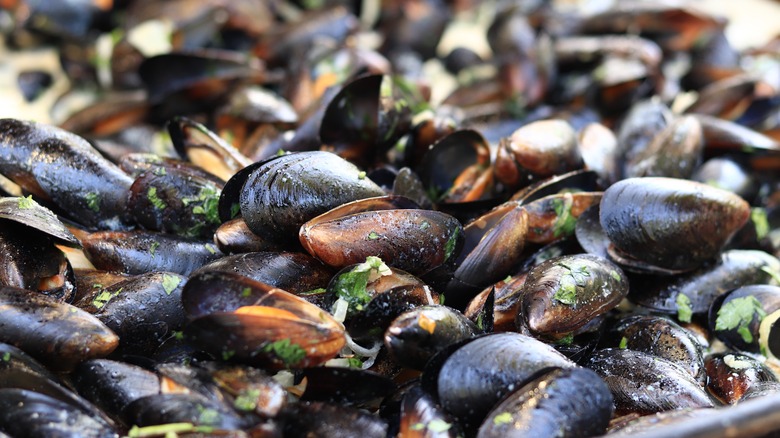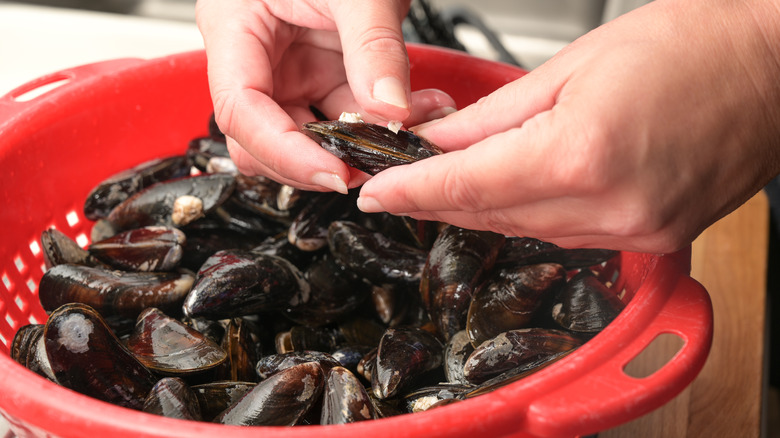Why You Shouldn't Clean Mussels Until Right Before Cooking
Cooking shellfish can be complicated, even if you do know the difference between common shellfish like clams and mussels. Not only is there a best season to buy shellfish, but they need to be properly cleaned and prepared before cooking to avoid a sandy and gritty texture.
When it comes to mussels, for example, there are tips and tricks to properly clean them, but most people do not know that timing also matters in this process.
Typically, mussels are still alive when they are bought. It is tempting to want to clean them as soon as you bring them home, but it is actually best to hold off. The goal is to keep them alive until as close as possible to the time of cooking because cleaning mussels can cause them to die, which can make them unsafe to eat.
Why cleaning and timing matters
A major reason why mussels need to be cleaned is due to grit. Sand and barnacles can be on or inside the shell. Not to mention mussels have a membrane known as a "beard," which is thin, sticky, and tough. It usually needs to be removed, although mussels raised on farms typically come debearded already.
No one wants to eat gritty, sandy mussels or bite into stringy, chewy membranes, which is why cleaning is such an important step. The cleaning process also allocates time to examine each mussel, which weeds out which ones are already dead. Dead mussels typically have a gaping open shell and will not react to being squeezed. What you don't want to do while cleaning though, is kill off additional mussels. Dead mussels go bad pretty quickly and timing your cleaning improperly can kill off more mussels after they have been brought home.
To get the most bang for your buck, wait to clean mussels, despite how tempting it may be to do it as soon as possible. If need be, store the mussels in a cool and breathable environment until you're ready to enjoy them, although it is generally recommended to purchase mussels the day you plan to cook them.

